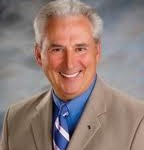6 Ways to Make Risk-Taking Worthwhile
 by: Fred Johnson, President/CEO, CUES
by: Fred Johnson, President/CEO, CUES
In golf, you have to know when to take the chance that you can successfully hit your next shot over a corner, some trees and maybe even a body of water. Your handicap aside, a big factor in your decision about whether to take the shot may be how great a reward you can expect from success. Can you win the tournament?
Over the years, CUES has taken some risks that have really panned out. Perhaps the most visible has been our investment in the development of the three-segment CEO Institute program, now the crown jewel among CUES’ professional development offerings. Here are six things we’ve kept in mind on the way to our success with this program. They’ll apply at your credit union, too:
1. Borrow good ideas and build on them. The idea for CEO Institute actually came from watching the executive education marketplace. Pioneers in this space were putting together some pretty good curricula for executives from various industries—but the dormitory experience, including shared rooming facilities, wasn’t all that desirable. So when we started talking to top universities about CEO Institute, we did two things: We invested in custom curriculum to meet the interests and needs of our members, and we partnered with top business schools that believed in providing executive-style accommodations.
2. Know your budget and your benchmark. The upfront cost of custom curriculum for the three segments of the CEO Institute program was a six-figure investment. That was a big risk for an organization of our size. But CUES had a budget and a plan to break even in five years. We made it in seven.
3. Follow your passion. The CUES Board of Directors stood with me when I wanted to keep CEO Institute going in those critical years between five and seven. We emphasized that offering credit union leaders the chance to learn at top-tier schools would not only improve the career opportunities for those individuals, but also boost the overall professionalism and knowledge base of the movement. Several CUES board members have gone through the program, including our current chairman, Lary McCants, CCD, CCE, president/CEO of $843 million IBM Southeast Employees’ Federal Credit Union, Boca Raton, Fla., and four others. So they know first-hand about the value and future for this program.
4. Listen to feedback from your customers. CUES had a committee that helped develop the curriculum for the CEO Institute segments. Some committee members had doubts. They asked us why we thought CU executives would pay tuition that was then $7,000 a segment when they could just as easily spend $3,000 to go to the college or university near them. Our attendees gave us the reason. CEO Institute graduates loved the program content and career-long professional connections with their colleagues so much, we were pretty sure we had a winner. Graduates also gave us specific feedback that helped us tweak individual segments and make them even better.
5. Know when to give up the dream. While the investment in our CEO Institute program curriculum was significant, the costs of running our Advanced Leadership Institute at Harvard were ultimately just too great. When those costs coincided with the downslide in the U.S. economy, we knew we could no longer justify offering the Harvard program. Ending the program was sad, but the right thing to do.
6. Reap the rewards. As I get ready to retire at the end of this year, I am pleased to see that the risk CUES took in establishing and continuing to offer CEO Institute has paid off in many ways. Around the industry, you now see CEOs and up-and-coming executives with “CCE” behind their names. This professional designation, Certified Chief Executive, signifies completion of all three CEO Institutes, plus two between-segments projects. A credit union CEO or potential CEO with this designation has boosted credibility. And of course, all their visible success builds the CUES and CEO Institute brand, and helps CUES build ever stronger relationships with our graduates and members.
In credit unions, too, it’s the stuff of leadership to recognize when you’ve got a really good idea and to position it for success in your marketplace. When you do, you’ll get rewarded for the risks you take along the way.
Fred Johnson is president/CEO of CUES, a Madison, Wisconsin-based, independent, not-for-profit, international membership association for credit union executives. CUES’ mission is to educate and develop credit union CEOs, directors and future leaders. www.cues.org
